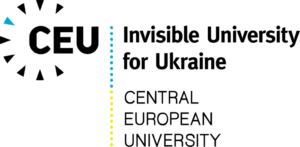Our events bring thought-provoking conversations about democracy to the Penn State community and beyond. We also partner with organizations across Penn State and throughout the State College community to co-sponsor programming. All events are free and open to anyone.
Colleen Shogan: Archivist of the United States
In Conversation with Professor Lisa Flores
Wednesday, October 23, 4:00 p.m. EDT
New Location” Robb Hall, Hintz Family Alumni Center

Colleen J. Shogan is the 11th Archivist of the United States. She was sworn in on May 17, 2023, and is the first woman appointed to lead the National Archives and Records Administration (NARA).
As the nation’s record keeper, Shogan is responsible for preserving, protecting, and sharing the history of the United States. A noted author and political scientist, Shogan is deeply committed to civic education and public engagement, and she has made it a priority to expand the reach of the National Archives to a wider audience.
Under her leadership, NARA has launched a number of initiatives to enhance services and make its holdings more accessible, both in-person and online, with the goal of cultivating public participation and strengthening our nation’s democracy.
Religious Studies Book Club: Why Religion is Good for American Democracy
Monday, October 28, 12:15-1:15 p.m.
118 Pasquerilla Spiritual Center
 The McCourtney Institute is partnering with the Religious Studies program for a book club discussion on Why Religion Is Good for American Democracy by Robert Wuthnow.
The McCourtney Institute is partnering with the Religious Studies program for a book club discussion on Why Religion Is Good for American Democracy by Robert Wuthnow.
In the book, Wuthnow makes his case by moving beyond the focus on unifying values or narratives about culture wars and elections. Rather, he demonstrates that the beneficial contributions of religion are best understood through the lens of religious diversity. The religious composition of the United States comprises many groups, organizations, and individuals that vigorously, and sometimes aggressively, contend for what they believe to be good and true. Unwelcome as this contention can be, it is rarely extremist, violent, or autocratic. Instead, it brings alternative and innovative perspectives to the table, forcing debates about what it means to be a democracy.
Free copies of the book are available for those who attend the discussion. To obtain a copy of the book and register for the event, contact Jake Nabel at jnabel@psu.edu.
Invisible University for Ukraine: Democracy During Wartime
2024 Brown Democracy Medal Ceremony
Thursday, October 31, 4:00 p.m. EDT
Foster Auditorium, 102 Paterno Library

Invisible University for Ukraine (IUFU), an initiative of Central European University, started in spring 2022, just months after Russia’s initial invasion. Since then, thousands of Ukrainian students have taken courses taught by hundreds of faculty from across Europe and beyond.
IUFU offers online courses as well as on-site summer and winter schools in Budapest, Hungary and Lviv, Ukraine. The program’s objective is help sustain intellectual growth in the midst of incredible hardships. Its leaders seek to help students develop democratic resiliency and help them become key actors in the reconstruction of the Ukrainian social and institutional texture.
IUFU director Balazs Trencsenyi will present a lecture on practicing democracy during a time of war on October 31 at 4:00 p.m. as part of the 2024 Brown Democracy Medal ceremony.